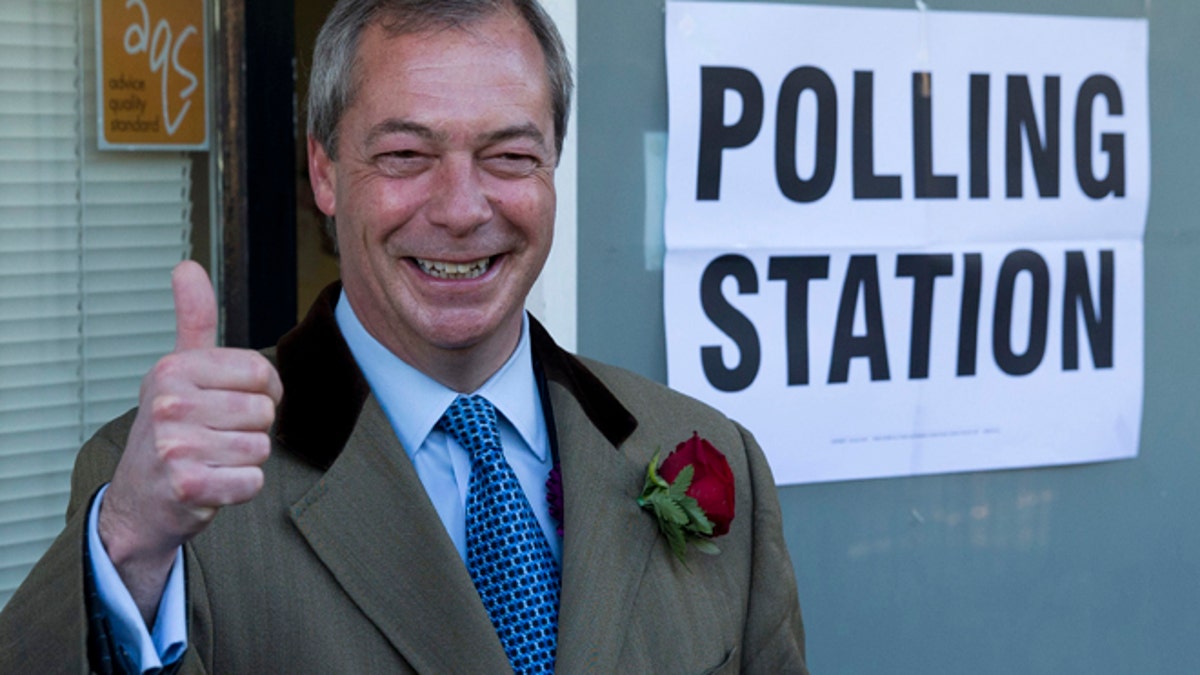
May 7, 2015: Nigel Farage the leader of the UK Independence Party (UKIP) poses for photographers as he arrives to cast his vote at a polling station in Ramsgate, southeast England. (AP)
After coming third in many opinion polls in the months prior to Thursday’s UK election, Nigel Farage’s U.K. Independence Party looked like it was going to pick up its first national seats in a general election, although not as many as the party would have hoped.
The surge in popularity of Nigel Farage’s party, founded in 1993 to seek limiting immigration into the country and to withdraw the U.K. from the 28-nation European Union, was a central story of the election after it came first in the country’s elections to the European Parliament in 2014.
"We want to take back our country, we want to take back our government, and we want to take back our birthright,” Farage told FoxNews.com last year.
Farage's outspoken right-wing views poached supporters on the right of Cameron's Conservative Party -- which has sought to take a more centrist stance on certain issues. However, Farage's down-to-earth mannerisms, as well as his emphasis on limiting low-skilled immigration, made him popular in Labour-dominated working-class areas as well.
Despite its popularity in opinion polls in which it consistently finished third, Britain's electoral system does not allot seats on voting shares. So UKIP, whose vote is spread across the country, looked likely to come second in many local races but win few. The exit poll released late Thursday, predicted that it would win two seats, UKIP's first seats in a general election.
However, deputy leader Paul Nuttall told the BBC that they were confident that they were going to do better than the exit polls predicted
"We are confident and we are going into the next half of the decade looking forward to changing British politics," Nuttall told the BBC.
Farage has said he will quit if he does not win the seat he is contesting in the Thanet South constituency. UKIP has two MPs in Parliament after two Conservative MPs defected and were re-elected as UKIP representatives in separate special elections for UKIP.
The Associated Press contributed to this report.
